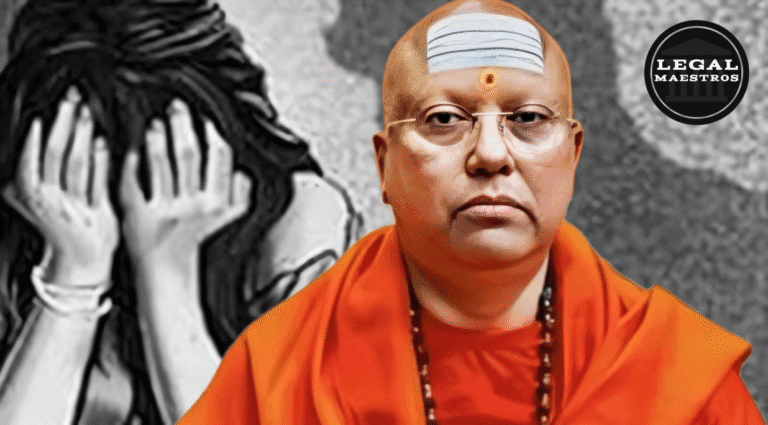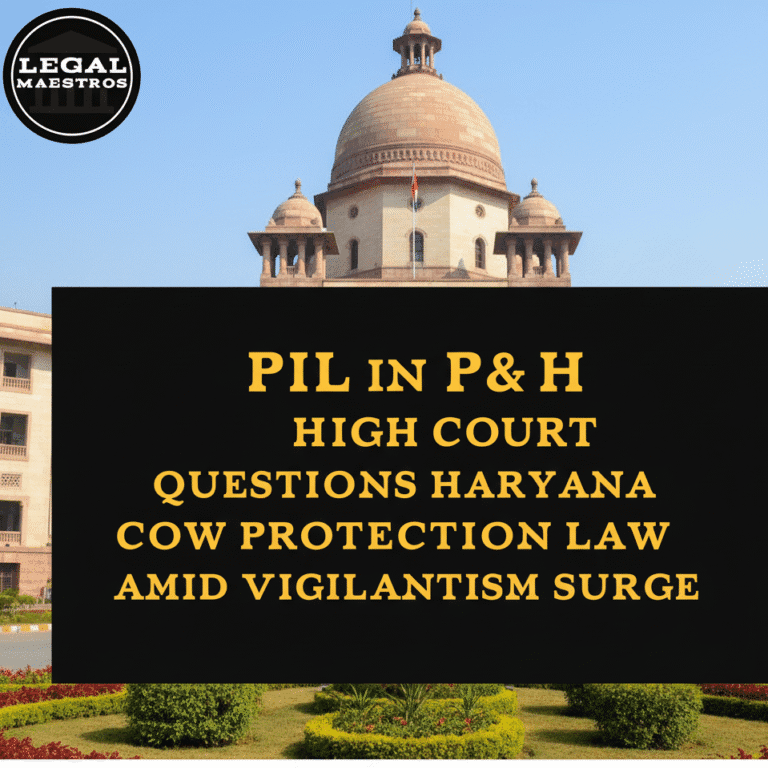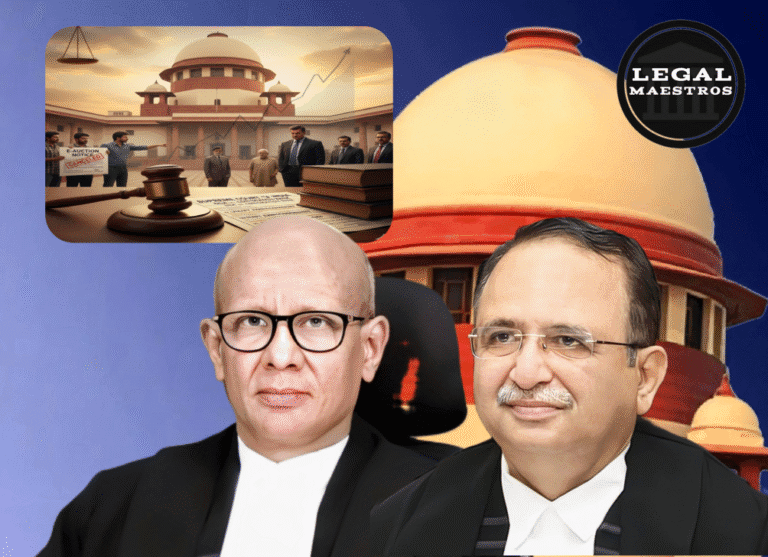
New Delhi: The Supreme Court has summoned a senior Bihar police officer to appear in-person after he submitted an affidavit supporting the accused in a criminal case.
A Bench of Justices Ahsanuddin Amanullah and S.V.N. Bhatti issued a show cause notice to IPS officer Ashok Mishra, the then Superintendent of Police of Bihar’s Samastipur, for what it called a “most casual manner” of filing an affidavit before the apex court.
Mishra is now posted as Superintendent of Police (G), Special Branch at Police Headquarter in Patna.
Mishra’s conduct came under scrutiny after the state of Bihar filed a counter-affidavit dated April 4, 2025, supporting the accused — overlooking the fact that the crime had been registered by the Bihar Police and had led to a conviction following due investigation and prosecution.
In an order passed on May 19, the apex court directed the impleadment of IPS Mishra – the then Samastipur SSP – as a respondent in the matter and ordered him to file a personal affidavit explaining his stance.
When the matter came up again for hearing on August 1, the Justice Amanullah-led Bench perused IPS Mishra’s explanation in which he attributed the controversial portions of the affidavit to “inadvertence/oversight” and tendered an unconditional apology.
However, the apex court expressed surprise that such a stand was taken and observed that the deponent had affirmed the affidavit in a most casual manner.
In sharp remarks, the Supreme Court said, “If this is the seriousness shown by a senior officer towards this Court, one can well understand the approach towards other Courts.”
Observing that an unconditional apology would not suffice, the Justice Amanullah-led Bench decided to take judicial notice of what it termed “conduct prejudicial to the interest of the State and the rule of law.”
“Accordingly, we put Mr. Ashok Mishra, I.P.S., on notice and issue show cause to him to explain to us as to why this Court may not take a strict view of the matter and pass appropriate orders against him,” the top court ordered, directing the official to appear in person on August 19.
Legal Safeguards Against Police Misconduct
The Indian legal framework provides various constitutional and statutory protections to prevent abuse of power by law enforcement authorities:
A. Constitutional Protections
- Article 20(3): Protection against self-incrimination.
- Article 21: Right to life and personal liberty, which includes protection from arbitrary arrest or custodial abuse.
- Article 22(1): Right to consult a legal practitioner and be informed of the grounds of arrest.
B. Statutory Provisions
- Section 58 of the Code of Criminal Procedure (CrPC): Mandates that an arrested individual be presented before a magistrate within 24 hours.
- Section 53 of CrPC: Requires a medical examination to prevent and record custodial abuse.
- Bharatiya Nyaya Sanhita (BNS), 2023: Incorporates updated provisions penalizing misconduct by public servants, including police officers.
- The Protection of Human Rights Act, 1993: Establishes the National and State Human Rights Commissions (NHRC/SHRC) to investigate and act upon human rights violations.
Role of the Judiciary in Addressing Police Misconduct
Indian courts have played a critical role in upholding the rights of individuals and holding law enforcement accountable. In landmark cases such as D.K. Basu v. State of West Bengal, the judiciary has laid down comprehensive guidelines to prevent custodial violence and ensure transparency during arrests.
Courts are empowered to:
- Award compensation to victims of unlawful police action
- Order criminal prosecution of offending officers
- Direct institutional or departmental reforms for accountability
Mechanisms for Filing Complaints
Victims of police misconduct may pursue the following remedies:
- Lodging a complaint with the NHRC, SHRC, or the Police Complaints Authority
- Filing a writ petition in the High Court under Article 226 of the Constitution to seek appropriate reliefs such as compensation or habeas corpus
- Registering a criminal case against the police officers involved under the relevant provisions of the BNS or Indian Penal Code
- Submitting a formal complaint to the Superintendent of Police or higher-ranking officials
- Approaching a Magistrate directly under relevant provisions of CrPC, especially if the police refuse to register an FIR
Legal Remedies Available
Victims are entitled to seek:
- Monetary compensation through court orders for illegal detention, custodial torture, or death
- Departmental action, including suspension, transfer, or dismissal of the responsible officers
- Criminal prosecution under statutory law, where sufficient evidence of misconduct exists
Preventive Measures and Citizen Awareness
Being informed of one’s rights significantly reduces the risk of abuse. Citizens should be aware of the following:
- Right to know the grounds of arrest
- Right to remain silent and avoid self-incrimination
- Right to legal counsel—and access to legal aid if unable to afford representation
- Right to be produced before a magistrate within 24 hours of arrest
- Right to medical examination, which can serve as evidence in cases of custodial abuse
Furthermore, individuals should document all interactions where possible, noting badge numbers, names, and the presence of witnesses. Lawfully recording encounters may also serve as vital evidence.





